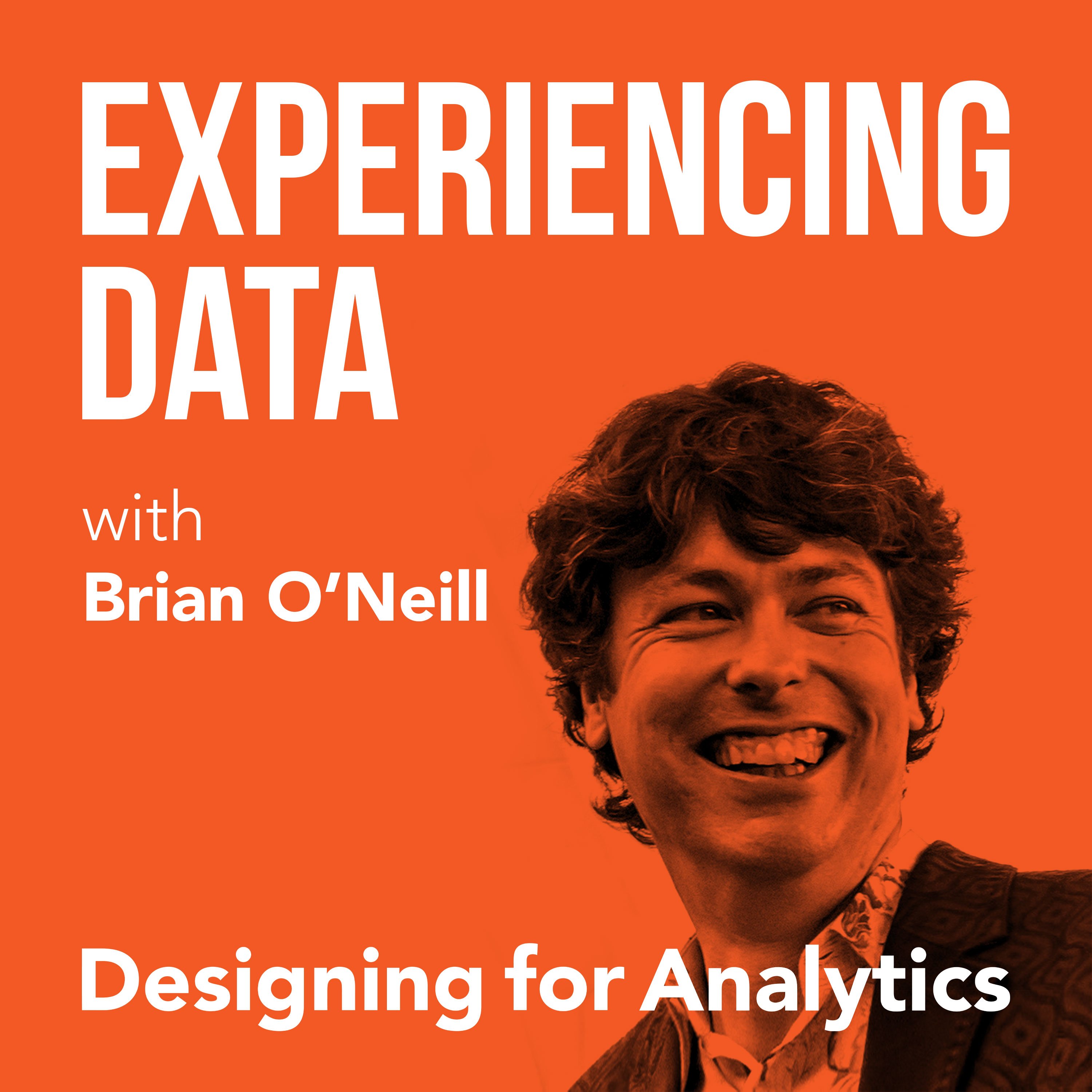120 - The Portfolio Mindset: Data Product Management and Design with Nadiem von Heydebrand (Part 2)
Description
Today I’m continuing my conversation with Nadiem von Heydebrand, CEO of Mindfuel. In the conclusion of this special 2-part episode, Nadiem and I discuss the role of a Data Product Manager in depth. Nadiem reveals which fields data product managers are currently coming from, and how a new data product manager with a non-technical background can set themselves up for success in this new role. He also walks through his portfolio approach to data product management, and how to prioritize use cases when taking on a data product management role. Toward the end, Nadiem also shares personal examples of how he’s employed these strategies, why he feels it’s so important for engineers to be able to see and understand the impact of their work, and best practices around developing a data product team.
Highlights / Skip to:
Brian introduces Nadiem and gives context for why the conversation with Nadiem led to a two-part episode (00:35)
Nadiem summarizes his thoughts on data product management and adds context on which fields he sees data product managers currently coming from (01:46)
Nadiem’s take on whether job listings for data product manager roles still have too many technical requirements (04:27)
Why some non-technical people fail when they transition to a data product manager role and the ways Nadiem feels they can bolster their chances of success (07:09)
Brian and Nadiem talk about their views on functional data product team models and the process for developing a data product as a team (10:11)
When Nadiem feels it makes sense to hire a data product manager and adopt a portfolio view of your data products (16:22)
Nadiem’s view on how to prioritize projects as a new data product manager (19:48)
Nadiem shares a story of when he took on an interim role as a head of data and how he employed the portfolio strategies he recommends (24:54)
How Nadiem evaluates perceived usability of a data product when picking use cases (27:28)
Nadiem explains why understanding go-to-market strategy is so critical as a data product manager (30:00)
Brian and Nadiem discuss the importance of today’s engineering teams understanding the value and impact of their work (32:09)
How Nadiem and his team came up with the idea to develop a SaaS product for data product managers (34:40)
Quotes from Today’s Episode
“So, data product management [...] is a combination of different capabilities [...] [including] product management, design, data science, and machine learning. We covered this in viability, desirability, feasibility, and datability. So, these are four dimensions [that] you combine [...] together to become a data product manager.” — Nadiem von Heydebrand (02:34)
“There is no education for data product management today, there’s no university degree. ... So, there’s nobody out there—from my perspective—who really has all the four dimensions from day one. It’s more like an evolution: you’re coming from one of the [parallel business] domains or from one of the [parallel business] fields and then you extend your skill set over time.” — Nadiem von Heydebrand (03:04)
“If a product manager has very good communication skills and is able to break down the needs in a proper way or in a good understandable way to its tech lead, or its engineering lead or data science lead, then I think it works out super well. If this bridge is missing, then it becomes a little bit tricky because then the distance between the product manager and the development team is too far.” – Nadiem von Heydebrand (09:10)
“I think every data leader out there has an Excel spreadsheet or a list of prioritized use cases or the most relevant use cases for the business strategy… You can think about this list as a portfolio. You know, some of these use cases are super valuable; some of these use cases maybe will not work out, and you have to identify those which are bringing real return on investment when you put effort in there.” – Nadiem von
More Episodes
R&D for materials-based products can be expensive, because improving a product’s materials takes a lot of experimentation that historically has been slow to execute. In traditional labs, you might change one variable, re-run your experiment, and see if the data shows improvements in your...
Published 11/26/24
Jeremy Forman joins us to open up about the hurdles– and successes that come with building data products for pharmaceutical companies. Although he’s new to Pfizer, Jeremy has years of experience leading data teams at organizations like Seagen and the Bill and Melinda Gates Foundation. He...
Published 11/14/24


